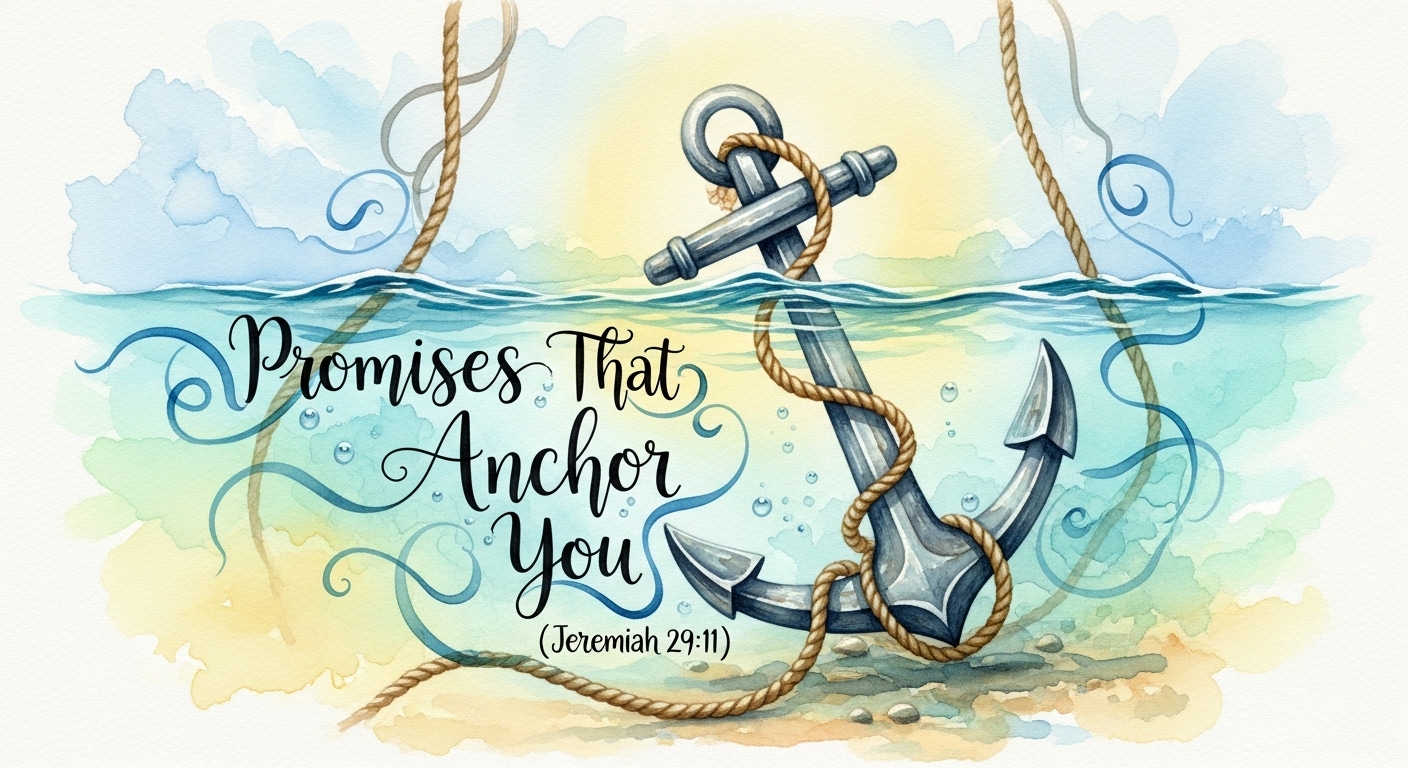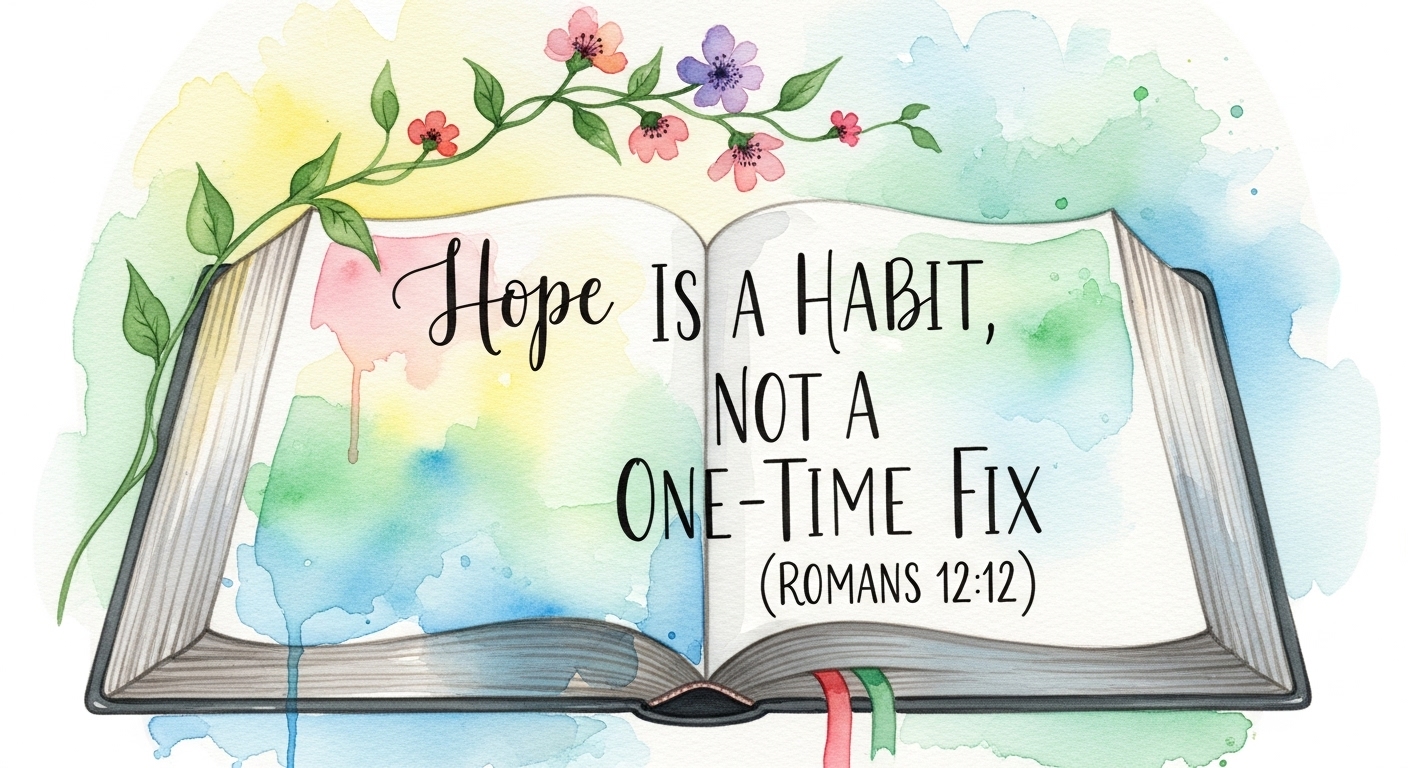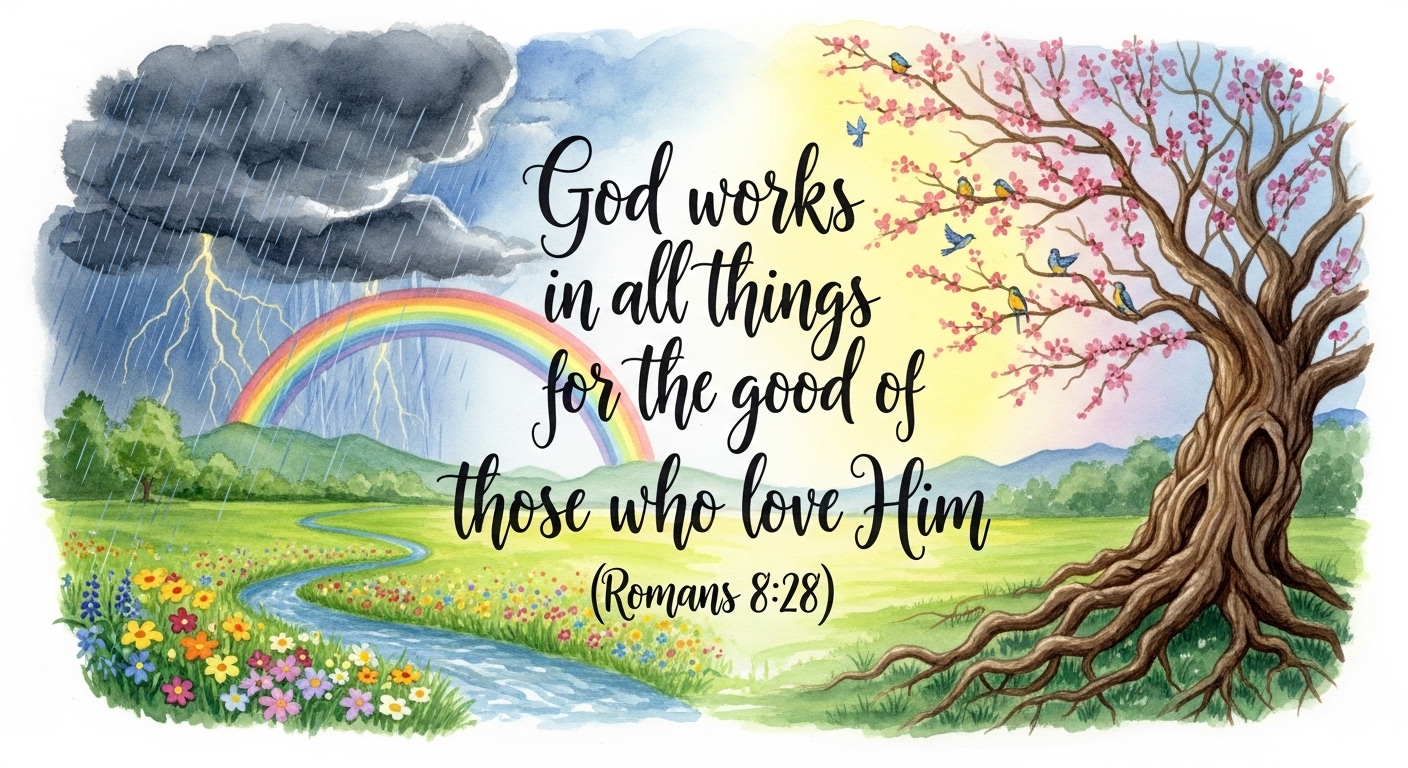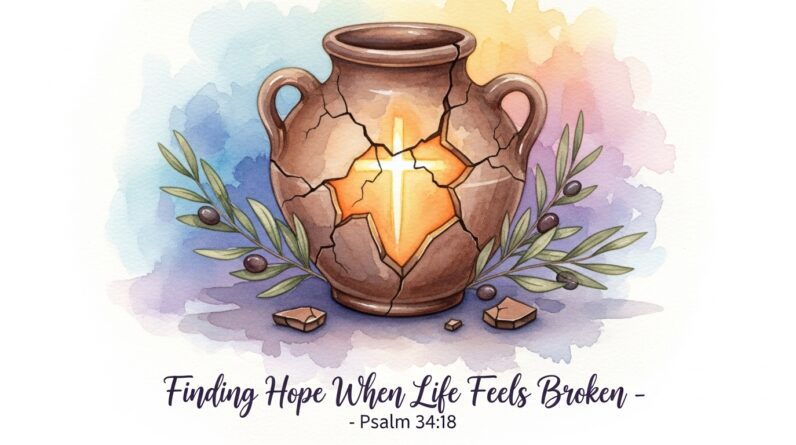When You Can’t See The Light: Holding On To Hope
You’re standing in a room with the lights off. You know the switch exists, and you remember the brightness from other times, but right now the darkness feels dense and real. That’s what it can feel like when life presses hard and hope seems distant. This piece is for when you can’t see the light—when fears, questions, or grief keep you from feeling God’s nearness. You’ll read practical encouragement, spiritual reminders, and ways to keep trusting God’s unseen hand. Throughout, you’ll see how finding hope through faith is not just a slogan but a lifeline you can rely on.
Why the Darkness Feels So Real
When you’re in a season of uncertainty, your senses tend to exaggerate the worst. Emotions color memories, worries multiply, and you start to believe the absence of visible answers equals God’s absence. But feelings are not the full story. The Bible recognizes the reality of darkness and invites you into an honest relationship with God in those moments. You’re not expected to manufacture light by sheer will; instead, you’re invited to rest in promises and to practice trusting even when proof is thin. This is a crucial part of finding hope through faith—acknowledging the darkness while holding on to what God has said.
What Hope Really Is
Hope is not wishful thinking or naive optimism. In Scripture, hope is anchored in God’s character and actions. It is a steady expectation rooted in what God has already done and who He is. Hebrews defines faith in a way that illuminates hope: “Now faith is confidence in what we hope for and assurance about what we do not see” (Hebrews 11:1). That means part of finding hope through faith is learning to be confident in God’s unseen activity. Hope becomes the posture you adopt toward the future, guided by trust rather than fear.
The Difference Between Hope and Denial
You can confuse hope with denial when you insist that everything is fine despite evidence otherwise. Real hope names the pain, the loss, the uncertainty—and yet it chooses to look toward God’s promises. Think of it as a two-fold movement: honest confrontation of reality, followed by a deliberate reorientation toward God. That’s how you practice finding hope through faith without ignoring the stakes or pretending hardship isn’t real.
Trusting God’s Unseen Hand
You may not feel God’s touch, but the Bible frequently calls you to trust the hand you cannot always see. The psalmist writes about God’s presence even in deep valleys: “Even though I walk through the darkest valley, I will fear no evil, for you are with me” (Psalm 23:4). Trusting God’s unseen hand doesn’t mean your doubts disappear instantly. It means you lean into God’s nearness despite those doubts, believing that He is at work in ways you can’t fully perceive right now. That posture is a foundational part of finding hope through faith.

Promises That Anchor You
God’s promises are lifelines when circumstances shift. Jeremiah reassures you that God’s plans are ultimately for your good: “For I know the plans I have for you,” declares the Lord, “plans to prosper you and not to harm you, plans to give you hope and a future” (Jeremiah 29:11). Holding on to God’s promises doesn’t mean ignoring present pain; instead, it gives you a larger story to hold the pain within. As you practice finding hope through faith, memorizing and meditating on such promises rewires your expectations and steadies your heart.
The Role of Patience and Waiting
Waiting is hard—especially when you’re used to answers arriving quickly. Yet Scripture places high value on patience. Isaiah offers an image of renewal that is both poetic and practical: “But those who hope in the Lord will renew their strength. They will soar on wings like eagles” (Isaiah 40:31). Waiting doesn’t mean doing nothing; it means trusting and preparing your heart, building resilience, and staying near God so you’re ready when the light comes. Waiting is a discipline that refines your capacity for finding hope through faith.
How Suffering Shapes Your Soul
Suffering has purpose even if that purpose feels obscure in the moment. The New Testament teaches that trials produce endurance, and endurance leads to a more mature faith. James writes about the process: “Consider it pure joy, my brothers and sisters, whenever you face trials of many kinds, because you know that the testing of your faith produces perseverance” (James 1:2-4). This doesn’t sentimentalize pain; it recognizes that God can use difficult seasons to expand your capacity to hope. When you pursue finding hope through faith, you let those trials teach you, rather than merely break you.
Finding Hope in the Midst of Anxiety
If anxiety keeps you awake at night, Scripture offers specific comfort. Jesus invited weary people to bring their burdens and find rest: “Come to me, all you who are weary and burdened, and I will give you rest” (Matthew 11:28-30). Anxiety often speaks loudly; faith listens to a still, quieter promise. Through prayer, worship, and breathing your concerns to God, you cultivate a place of refuge. Practicing these rhythms helps you move from reactive fear toward steady hope, deepening your experience of finding hope through faith.
Prayer as an Anchor
Prayer is not a magic formula, but it is the primary way you connect with God’s unseen hand. Paul tells you not to be anxious about anything, “but in every situation, by prayer and petition, with thanksgiving, present your requests to God” (Philippians 4:6-7). Prayer shifts your orientation: you stop carrying everything alone and begin to let God carry what He will. Over time, prayer is a training ground for trust. As you practice finding hope through faith, your prayers become both honest confessions and steady reminders of God’s presence.
Scripture That Breathes Life
Scripture has the power to speak into your dormancy and call you back to clarity. When you read and meditate on God’s Word, you’re intentionally placing truth over your fears. Paul encourages believers to set their minds on what is unseen and eternal: “So we fix our eyes not on what is seen, but on what is unseen, since what is seen is temporary, but what is unseen is eternal” (2 Corinthians 4:16-18). Investing time in Scripture helps you internalize the perspective necessary for finding hope through faith. The Scriptures don’t remove the pain instantly, but they give you a faithful narrative to stand in.
Community: Why You Need Others
Hope is often sustained not just by solitary acts of faith but through the presence of others. When you’re struggling, the community provides encouragement, accountability, and practical help. The Bible repeatedly calls the church to bear one another’s burdens. Galatians reminds you to not grow weary in doing good, because perseverance in community yields reward: “Let us not become weary in doing good, for at the proper time we will reap a harvest if we do not give up” (Galatians 6:9). Surrounding yourself with people who pray with you and for you is a tangible expression of finding hope through faith together.
Small Practices That Keep You Steady
You don’t need grand acts to cultivate hope. Small, consistent habits compound over time and help you stay anchored during storms. Consider daily practices like brief readings of Scripture, journaling prayers and praises, naming one thing you’re thankful for, or reaching out to a friend. These practices sound simple, but they reorient your heart away from the spiral of fear and toward a posture of trust. They’re practical ways of finding hope through faith in the day-to-day.
How to Pray When You Don’t Know What to Say
When words feel inadequate, Scripture offers prayers you can adopt. The psalms provide language for every emotion—anger, sorrow, gratitude, and bewilderment. Even a short prayer like the Lord’s Prayer or a single verse can serve as a lifeline. You can also echo Paul’s approach: when you don’t know how to pray, the Spirit intercedes for you with groans that words cannot express (Romans 8:26-27). Let prayer be a place where you bring your rawness and allow God to shape your heart toward hope. This is a powerful part of finding hope through faith when language fails.
Holding On When God Seems Silent
God’s silence is one of the most agonizing aspects of spiritual life. Silence can feel like abandonment, but the biblical witness suggests it may be a form of refining. Lamentations speaks to this tension: “Because of the Lord’s great love we are not consumed, for his compassions never fail” (Lamentations 3:22-24). Even in silence, God’s compassion is present. Choosing to hold on during silence—through worship, Scripture, and faithful community—is part of finding hope through faith. Often, clarity follows seasons of quiet.
How Stories of Faith Encourage You
Stories of ordinary people who trusted God through hard seasons can buoy you when your own future looks bleak. Hebrews 11 catalogs people who lived by faith when outcomes were uncertain, describing faith as confidence in what you hope for and assurance about what you do not see (Hebrews 11:1). Their lives don’t promise instant resolution, but they remind you that faith can be steady even without visible proof. You aren’t alone in your struggle; generations before you have navigated doubt and emerged with stronger hope.
Reframing “Answered Prayers”
You might be waiting for a particular outcome and feel disappointed when it doesn’t come your way. It helps to reframe how you think about answered prayers. Sometimes God says yes, sometimes no, and sometimes “wait.” Romans provides a wider lens for suffering and purpose: “And we know that in all things God works for the good of those who love him” (Romans 8:28). That doesn’t promise an immediate fix, but it assures you that God is weaving circumstances into a larger good. This perspective is central to finding hope through faith as you learn to trust God’s wisdom beyond your timing.

Hope Is a Habit, Not a One-Time Fix
Hope is cultivated through repeated choices to trust. You’ll probably have days when hope feels easier and days when it seems absent. The key is consistency. Romans encourages steadfastness in hope and rejoicing in hope: “Be joyful in hope, patient in affliction, faithful in prayer” (Romans 12:12). Making the habits of prayer, Scripture, and community part of your daily life builds a muscle of hope that gets stronger with time.
Hope in the Face of Loss
Grief reshapes everything. It questions whether life will ever feel whole again. The Bible doesn’t offer platitudes to bypass grief; it invites you into mourning with the God who weeps. Jesus wept at Lazarus’s death as a model of empathetic sorrow (John 11:35). Even in grief, God’s promises remain—promises of comfort, restoration, and presence. You can practice finding hope through faith amid loss by holding both your sorrow and God’s promises simultaneously, trusting He will carry you forward.
Practical Steps to Rewire Your Mind Toward Hope
You can take concrete steps to reorient your mind:
- Start small: pick one encouraging verse to memorize and repeat daily.
- Replace catastrophizing thoughts with truths from Scripture.
- Keep a gratitude list to combat the negativity bias.
- Set up a simple prayer routine, even if it’s five minutes in the morning.
These steps help you create new pathways in thinking so that finding hope through faith becomes a practical reality rather than an abstract idea.
When Doubt Becomes a Gateway
Doubt can be painful, but it isn’t always a sign of failing faith. Sometimes doubt is the doorway to deeper understanding. Ask honest questions, seek mentors or pastors, and lean into Scripture. The early church wrestled with doubts and used them to sharpen faith. Peter’s story shows how failure and restoration can coexist: even after denying Jesus, Peter was restored and became a leader in the faith (John 21:15-17). Your doubts can lead to a more resilient trust if you use them to pursue truth rather than run from it.
Hope That Outlives Circumstance
Eternal hope gives you perspective. Paul writes that believers have a living hope through the resurrection of Jesus Christ, a hope that is an anchor for your soul (1 Peter 1:3-9). This eternal dimension doesn’t remove the pain of today, but it places today inside a larger, eternal story. When you practice finding hope through faith, you learn to live with one foot in the present and one foot in the promise of what’s to come.
How to Encourage Someone Else
When you see a friend in darkness, your presence often matters more than perfect words. Listen first; don’t rush to fix. Offer to pray with them, bring a meal, or simply sit in silence. Small acts of compassion model God’s care and help others see light through your faithful presence. Encouraging someone else can also reinforce your own hope because active love connects you to the work God is doing around you.
Stories of Renewal
History and contemporary testimonies provide powerful examples of renewal after despair. People who have faced addiction, loss, or betrayal and emerged with renewed faith show how hope can be rebuilt. These stories aren’t meant to minimize suffering; they’re meant to remind you that transformation is possible and often happens in surprising ways. When you keep looking for God’s hand in everyday life, you’ll start to notice small signs of renewal that lead to bigger change—another facet of finding hope through faith.
Practical Tools for When You Feel Overwhelmed
When overwhelm hits, tools you can use immediately include breathing exercises, Scripture-reading apps, a list of trusted contacts to call, and a small journal for short prayers or gratitude notes. You can also set phone reminders to pause and pray during the day. These practical tools are not substitutes for deep spiritual work, but they help you stay connected to God’s presence in real time. Their repeated use cultivates an environment where finding hope through faith becomes more accessible.
When to Seek Professional Help
Sometimes the darkness is more than you can handle on your own—or even with spiritual supports. If you’re dealing with prolonged depression, suicidal thoughts, or trauma, seeking professional counseling or medical help is wise and courageous. God often uses trained professionals alongside spiritual supports to heal and restore. Combining therapy with faith practices is a robust approach to regaining hope and health.
The Long View: Faith That Perseveres
Your journey toward hope is rarely linear. Seasons of flourishing and seasons of drought can alternate, and both have their lessons. Paul’s encouragement to believers about perseverance rings true: “Rejoice in hope, be patient in tribulation, be constant in prayer” (Romans 12:12). Keeping the long view helps you avoid quick-fix solutions and embrace steady rhythms that foster finding hope through faith over a lifetime.
Hope in Everyday Moments
Sometimes hope shows up in small, almost unnoticed ways—a text from a friend, a sunrise, a moment of laughter after tears. Those small moments matter. They are signs of God’s ongoing care and reminders that light returns, often gradually. Pay attention to those small mercies; they’re the breadcrumbs that lead you through the dark toward fuller light. Cultivating gratitude for these moments reinforces the reality of God’s presence and supports your practice of finding hope through faith.

Closing Encouragement
You don’t need to pretend everything is okay to hold on to hope. You can be honest about your fears, your confusion, and your pain while you still cling to God’s promises. The Bible repeatedly calls you to steady trust, patient waiting, and resilient joy. Romans promises that God works in all things for the good of those who love Him (Romans 8:28), and that assurance can be a balm when you can’t see the light. Continue practicing prayer, dwelling in Scripture, staying in community, and taking small steps forward. That is how finding hope through faith becomes more than an idea—it becomes your way forward.
If you’re still searching for a verse to carry you through, here are a few you can come back to when the dark feels heavy:
- Hebrews 11:1 — For the connection between faith and hope.
- Psalm 23:4 — For comfort in deep valleys.
- Jeremiah 29:11 — For assurance of God’s good plans.
- Isaiah 40:31 — For strength in waiting.
- Romans 8:28 — For God’s work in all things.
You are invited to keep going. Hope is not a bright switch you flip once; it’s a light you learn to kindle again and again through faithful practices, community, and trusting God’s unseen hand. Keep reaching for Him, even when you can’t see the light clearly. That reaching is itself an act of finding hope through faith.
Explore More
For further reading and encouragement, check out these posts:
👉 7 Bible Verses About Faith in Hard Times
👉 Job’s Faith: What We Can Learn From His Trials
👉 How To Trust God When Everything Falls Apart
👉 Why God Allows Suffering – A Biblical Perspective
👉 Faith Over Fear: How To Stand Strong In Uncertain Seasons
👉 How To Encourage Someone Struggling With Their Faith
👉 5 Prayers for Strength When You’re Feeling Weak

📘 Jesus and the Woman Caught in Adultery – Grace and Mercy Over Judgement
A powerful retelling of John 8:1-11. This book brings to life the depth of forgiveness, mercy, and God’s unwavering love.
👉 Check it now on Amazon 🛒💥
🔥 “Every great message deserves a home online.” 🌍💬🏡
Don’t let your calling stay hidden. Start a Christian blog or website using Hostinger — with 99.9% uptime, a free domain, and SSL, your voice can shine for God’s glory anytime, anywhere.
💥 Begin today. 🛒 Try it RISK-FREE! ✅
✝️ “Your body is God’s temple — care for it with purpose.” 💪💖🏛️
Renew your energy and restore balance naturally. Mitolyn helps support a healthy metabolism, giving you the vitality to live out God’s calling with strength and confidence.
🔥 Unlock Your Metabolic Power! ⚡Burn More Calories & Feel Great With Mitolyn. 💪
👉 Start Today. 🚀 Check Price Now. 🛒💰
💰 As a ClickBank & Amazon Affiliate, I earn from qualifying purchases.
📖 Acknowledgment: All Bible verses referenced in this article were accessed via Bible Gateway (or Bible Hub).
🚀 Want to explore more? 👉 Dive into our new post on Why Jesus? and experience the 🔥 life-changing truth of the Gospel!







